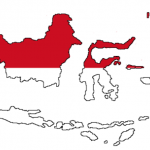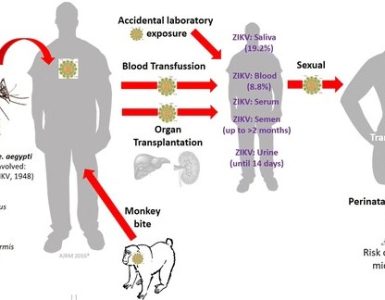 Infectious diseases remain a major concern, with the government calling on all stakeholders to do their part in taking preventive measures and investing in tackling the problem.
Infectious diseases remain a major concern, with the government calling on all stakeholders to do their part in taking preventive measures and investing in tackling the problem.
While getting adventurous with food has become the “in” thing to do these days, suffering from food-borne illnesses is surely not part of the thrill.
Typhoid fever is one of the reasons why there needs to be a heightened alert when it comes to consumption of food and drinks. When a person consumes food or drink that has been contaminated with Salmonella Typhi bacteria, it will enter his or her bloodstream and intestinal tract. The bacteria will continue to multiply and spread, causing the body to react with fever and other signs and symptoms.
It is a common illness in the developing world, including Indonesia, and it takes precautions to stay away from the risk. Vaccination against typhoid is recommended, but physicians warn immunization alone may not be sufficient.
“It’s hard to avoid typhoid if the food or beverages we consume come from restaurants or food stalls with bad hygiene. Better prevention against typhoid requires action from the government, food producers and ourselves. The government needs to monitor and hold high standards on food processing; the producers need to abide by the law; and we as consumers have to be ever more selective,” advised Dr. I Made Cock Wirawan, a physician and author of the book Kata Dokter (“Doctor says”).
Along with Hepatitis A, Hepatitis B, malaria, rabies and Japanese Encephalitis, typhoid is one of the diseases the US-based Centers for Disease Control and Prevention warns visitors to Indonesia against.
From measles to typhoid fever, tuberculosis to Ebola, all these communicable diseases continue to be major health concerns for people in developing countries. According to the US National Library of Medicine, infectious diseases kill more people worldwide than any other single cause, all caused by germs in air, soil and water. This is due to the following reasons: emergence of new infectious diseases, re-emergence of old infectious diseases and persistence of intractable infectious diseases, based on research by the US-based National Institute of Allergy and Infectious Diseases.
“Why is our country so prone to infectious diseases? If you look at the population growth unaccompanied by decent housing, it’s only natural that those who can’t afford proper housing will resort to slums. It’s in slums with poor sanitation that most infectious diseases flourish and thrive. If nothing is done, it’s only a matter of time before we start witnessing epidemic diseases on the rise,” warned Dr. Made.
As experts point out, changes in human demographics, behavior and land use are all part of the reasons behind the changing transmission dynamics that bring people into closer and more frequent contact with pathogens. It’s a stark reality that calls for better prevention and treatment, more urgently than ever.
Take, for example, the threat of cholera, an acute diarrheal disease that can kill within hours if untreated. The WHO predicts that there are an estimated 3-5 million cholera cases and 100,000-200,000 deaths related to the disease each year. While the good news is that the majority of the cases can be successfully treated with oral rehydration salts, existing problems with provision of safe water and sanitation, especially as a consequence of natural disasters, mean that the danger is still present.
As warned by the WHO, cholera today remains a global threat to public health and a key indicator of lack of social development. Recently, the re-emergence of cholera has been noted in parallel with the increasing size of vulnerable populations. Therefore, the agency recommends that governments target immunization in areas where the risk of outbreaks is high, and to implement recommended control measures. Vaccines are only good for providing a short-term effect, and do not in any way substitute improvements in water and sanitation.
Another example is Hepatitis A, a viral liver disease that is transmitted through ingestion of contaminated food and water, or through direct contact with an infectious person. It is one of the most frequent causes of food-borne infection. Like typhoid and cholera, Hepatitis A is also associated with a lack of safe water and poor sanitation. According to the WHO, improved sanitation and vaccination are the most effective ways to combat this disease and others.
“What I urge is for people to maintain their personal and environmental hygiene,” said Dr. Made, adding that wellbeing starts with one’s self, through methods as simple as developing a habit of regularly washing hands with soap. Nevertheless, he also calls on the government to do its part.
“The government needs to come up with better regulations and monitor their implementation. It also needs to provide better housing with good sanitation and provide better health-related information to the public,” said the doctor, who’s also an active blogger.
Earlier this year, the Geneva-based WHO called on governments to scale up investment in tackling 17 neglected tropical diseases that endanger the health and wellbeing of more than 1.5 billion people. The investment, according to the agency, represents as little as 0.1 percent of current domestic expenditure on health in affected low- and middle-income countries for the period 2015-2030.
“Increased investment by national governments can alleviate human misery, distribute economic gains more evenly and free masses of people long trapped in poverty,” said WHO director general Margaret Chan.
Adding his two cents, Dirk Engels, director of the WHO Control of Neglected Tropical Diseases Department, said, “The potential for spread provides yet another strong argument for making the needed investments, while ramping up research and development efforts, to bring all these diseases under control and eliminate as many of them as rapidly as possible.”
As rapidly as possible, because tomorrow may be too late.
Source: Jakarta Post

















